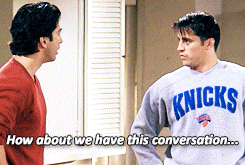Text
Eventually they’ll need to reinvent Superman’s alter-ego because nobody reads newspapers anymore
582K notes
·
View notes
Photo








Ten Years of Ten
The Tenth Doctor (David Tennant) made his full episode debut on Doctor Who in The Christmas Invasion December 25, 2005.
9K notes
·
View notes
Text
This is very nice. I just want to add some other filler words that we use a lot in the Portuguese language. They are:
“Né”, short for “não é” (isn’t it?), usually used in informal conversations and it’s often repeated a lot in the same sentence;
“Daí”, (”then,”, “so,”), mostly used to get two different parts of an story together;
“Pois”, (”then...”, “so...”);
“Então”, (therefore, “so...”);
“Enfim...”, (anyway...);
“Quer dizer”, (I mean);
“Ou seja”, (I mean, like);
“Bom/bem”, (well...);
“Tipo” really is one of the most used ones, but - at least in Brazil - the diversity of language is huge and there is a lot more to know. Here is a list of useful phrases too, if you’re traveling to Brazil soon. Make sure you check the comments bellow the post. :)
In linguistics, a filler is a sound or word that is spoken in conversation by one participant to signal to others that he/she has paused to think but is not yet finished speaking. These are not to be confused with placeholder names, such as thingamajig, which refer to objects or people whose names are temporarily forgotten, irrelevant, or unknown.
In Afrikaans, ah, em, and eh are common fillers.
In Arabic, يعني yaʿni (“I mean”) and وﷲ wallāh(i) (“by God”) are common fillers.[2][3][4]
In American Sign Language, UM can be signed with open-8 held at chin, palm in, eyebrows down (similar to FAVORITE); or bilateral symmetric bent-V, palm out, repeated axial rotation of wrist (similar to QUOTE).
In Bengali, mane (“it means”) is a common filler.
In Catalan, eh /ə/, doncs (“so”), llavors (“therefore”), and o sigui (“it means”) are common fillers.
In Czech, tak or takže (“so”), prostě (“simply”), jako (“like”) are used as fillers. Čili (“or”) and že (“that”, a conjunction) might also be others. A person who says jako and prostě as fillers might sound a bit simple-minded to others.[5]
In Danish, øh is one of the most common fillers.
In Dutch, eh, ehm, and dus are some of the more common fillers.
In Esperanto, do (“therefore”) is the most common filler.
In Filipino, ah, eh, ay, and ano are the most common fillers.
In Finnish, niinku (“like”), tota, and öö are the most common fillers.
In French, euh /ø/ is most common; other words used as fillers include quoi (“what”), bah, ben (“well”), tu vois (“you see”), and eh bien (roughly “well”, as in “Well, I’m not sure”). Outside of France, other expressions are tu sais (“you know”), t’sais’veux dire? (“you know what I mean?”), or allez une fois (“go one time”). Additional filler words include genre (“kind”), comme (“like”), and style (“style”; “kind”)
In German, a more extensive series of filler words, called modal particles, exists, which actually do give the sentence some meaning. More traditional filler words are äh /ɛː/, hm, so /zoː/, tja, and eigentlich (“actually”)
In Hebrew, eh is the most common filler. Em is also quite common.
In Hindi, matlab (“it means”) and “Mah” are fillers.
In Hungarian, common filler words include hát (well…) and asszongya (a variant of azt mondja, which means “it says here…”).
In Icelandic, a common filler is hérna (“here”). Þúst, a contraction of þú veist (“you know”), is popular among younger speakers.
In Indonesian (Bahasa Indonesia), anu is one of the most common fillers.
In Italian, common fillers include “tipo” (“like”), “ecco” (“there”) and “cioè” (“actually”)
In Irish Gaelic, abair /ˈabˠəɾʲ/ (“say”), bhoil /wɛlʲ/ (“well”), and era /ˈɛɾˠə/ are common fillers, along with emm as in Hiberno-English.
In Japanese, common fillers include eetto, ano, sono, and ee.
In Kannada,Matte for also,Enappa andre for the matter is are the common fillers.
In Korean, eung, eo, ge, and eum are commonly used as fillers.
In Lithuanian, nu, am and žinai (“you know”) are common fillers.
IN Maltese and Maltese English, mela (“then”), or just la, is a common filler.
In Mandarin Chinese, speakers often say 这个 zhège/zhèige (“this”) or 那个 nàge/nèige (“that”). Another common filler is 就 jìu (“just/precisely”).
In Norwegian, common fillers are øh, altså, på en måte (“in a way”), ikke sant (literally “not true?”, “no kidding”, or “exactly”), vel (“well”), and liksom (“like”). In Bergen, sant (“true”) is often used instead of ikke sant. In the Trøndelag region, skjø’ (“see?” or “understand?”) is also a common filler.
In Persian, bebin (“you see”), چیز “chiz” (“thing”), and مثلا masalan (“for instance”) are commonly-used filler words. As well as in Arabic and Urdu, يعني yaʿni (“I mean”) is also used in Persian. Also, eh is a common filler in Persian.
In Portuguese, tipo (“like”) is the most common filler.
In Romanian, deci /detʃʲ/ (“therefore”) is common, especially in school, and ă /ə/ is also very common (can be lengthened according to the pause in speech, rendered in writing as ăăă), whereas păi /pəj/ is widely used by almost anyone.
In Russian, fillers are called слова-паразиты (“vermin words”); the most common are Э-э (“eh”), это (“this”), того (“that”), ну (“well”), значит (“it means”), так (“so”), как его (“what’s it [called]”), типа (“like”), and как бы (“[just] like”).
In Serbian, znači (“means”) and ovaj (“this”) are common fillers.
In Slovak, oné (“that”), tento (“this”), proste (“simply”), or akože are used as fillers. The Hungarian izé (or izí in its Slovak pronunciation) can also be heard, especially in parts of the country with a large Hungarian population. Ta is a filler typical of Eastern Slovak and one of the most parodied features.
In Slovene, pač (“but”, although it has lost that meaning in colloquial, and it is used as a means of explanation), a ne? (“right?”), and no (“well”) are some of the fillers common in central Slovenia, including Ljubljana.
In Spanish, fillers are called muletillas. Some of the most common in American Spanish are e /e/, este (“this”), and o sea (roughly means “I mean”).[6], in Spain the previous fillers are also used, but ¿Vale? (“right?”) and ¿no? are very common too.
In Swedish, fillers are called utfyllningsord; some of the most common are öhm, ja (“yes”), ba (comes from “bara”, which means “just”), asså or alltså (“therefore”, “thus”), va (comes from “vad”, which means “what”), and liksom and typ (both similar to the English “like”).
In Ukrainian, ой /ɔj/ is a common filler.
In Urdu, yani (“meaning…”), falan falan (“this and that”; “blah blah”), umm, and aaa are also common fillers.
In Telugu, ikkada entante (“Whats here is…”) and tarwatha (“then…”) are common and there are numerous like this.
In Tamil, paatheenga-na (“if you see…”) and apparam (“then…”) are common.
In Turkish, yani (“meaning…”), şey (“thing”), “işte” (“that is”), and falan (“as such”, “so on”) are common fillers.
In Welsh, de or ynde is used as a filler (loosely the equivalent of “You know?” or “Isn’t it?”). Ym… and Y… are used similarly to the English “um…”.
90K notes
·
View notes
Text
Ideas for a machine that translates INTP rudeness into what they actually mean (AND FEEL)?
613 notes
·
View notes
Text
MBTI As Not-So-Common Phrases
•ISFJ-“I’m sorry, but you’re stupid. That was mean. I’m sorry.”
•ENTJ-“I’m not even going to argue this. Just kidding.”
•ENFP-“I wonder how much caffeine I can consume in a day.”
•ENFJ-“I have a good/bad feeling about this.”
•ESFJ-“I just got my 1,000th follower on Tumblr. My soul is happy.”
•ESTP-“That’s what she said.”
•ESFP-“CANNONBAAAAALL!”
•ISTP-“I guess you could say I’m a lone wolf.”
•INTJ-“One day I will sit in the lap of luxury with armies at my command.”
•INFJ-“Why is everyone so loud all of the time..?”
•INFP-“I just want my bed and my books and my food.”
•ISFP-“So last night I had this weird dream that…”
•ISTJ-“Let’s just think this through before something goes wrong…”
•INTP-“Wait, what did you say?”
•ESTJ-“I just need to bring order to this before I lose my mind.”
•ENTP-“No. You are completely wrong in every way possible.”
739 notes
·
View notes
Photo
It's all made of matter. We are all made of everything. No more crying, Gingerbread Man.

by Kris Wilson
85K notes
·
View notes
Text
*cries over same episode of Sherlock for 3+ years*
224 notes
·
View notes
Text
Sometimes when I’m too deep in the Johnlock Hell I hear Mycroft whispering in my ear: I warned you: don’t get involved
2K notes
·
View notes
Text
omfg in the middle of an AMAZING slow burn johnlock fic right now -- the writing is brilliant and character development is ON POINT and they haven’t done The Sex yet but they are soOOOOooo in love with each other but the author takes forEVER to update save me
it’s called “Sherlock”
apparently it’s not on ao3 but the bbc is doing it?? idk
5K notes
·
View notes
Photo



“The mirror of erised. It shows us nothing more or less than the deepest, most desperate desire of our hearts.”
based on this.
18K notes
·
View notes
Photo








ART PRINTS BY ALEXANDER POHL
Mercury
Venus
Earth
Mars
Saturn
Uranus
Neptune
Moon
174K notes
·
View notes
Text
15 Reasons Why Monica Geller Is An Unappreciated Character
1: Fed all of her friends almost every day for ten years without complaining.
2: Excelled in a traditionally masculine career, (yes, cookery as a profession is generally male-dominated) and in traditionally masculine hobbies (football), without compromising her femininity or sexuality.
3: At the same time, revelled in traditionally female interests such as babies, marriage and housework without apologizing for them, or suggesting they made her inferior or weak.
4: Overcame teenage obesity.
5: Grew up in an emotionally abusive home, with a mother who subjected her to relentless criticism and verbal mistreatment….But still emerged with a sense of her own self-worth, determination to fulfil her dreams and huge capacity to care for others.
6: Stayed friends with her brother who bullied her as a child, and contributed to said-emotionally abusive home. Didn’t blame him for her mistreatment or show resentment towards him.
7: Took former best friend – who abandoned and rejected her for a ‘high society’ life – into her home without question.
8: Prior to this, accepted a woman who had previously lived on the streets, as her roommate and welcomed her into her group of friends.
9: Went through unemployment and shitty jobs, but refused to take unfair advantages she hadn’t earned (i.e. Pete buying her a restaurant). Eventually gained a prestigious head chef position based entirely on her own merit.
10: Walked away from the man she thought was the love of her life, because she wanted children and he’d only have them to make her happy. Even though that option would have been 100 times less painful for Monica, she knew that wasn’t fair on him and refused.
11: After marrying the actual love of her life, she waited until Chandler was ready to have kids, because she knew about his fears of raising children. When they discovered virtually the only option for children was sperm donor-ship (so they’d be her kids but not his), she refused and insisted on adoption.
12: Was also the one-woman cheerleading team for the aforementioned love of her life, in telling him he could be the amazing boyfriend, husband and father that he never saw in himself. Was proved 100% right.
13: Resisted her control-freak coping mechanisms to give Chandler the power of making the big decisions about their future, (saying ‘I Love you’, moving in together, marriage), so he could work through his commitment phobia. Again, proved it was 100% worth it.
14: Encouraged her husband to quit a job he hated, then supported him – financially and emotionally –through his subsequent unemployment and helped him find his dream career.
15: Never, ever fucking gives up on anything or anyone.
181K notes
·
View notes
Text
yeah, like... how
??¿?¿??
how the heck hagrid’s dad managed to get a giantess pregnant
25 notes
·
View notes
Text
The Pants Ephifany
So, I was shopping with my mom earlier today and I bought the most AMAZING pair of pants ever, and it made come up with a theory about... pants.
There’s a moment in life where you find your pants. That pair of pants will bring you sudden realization about yourself, your personality and your style. Mostthings you'll further buy will somehow relate to that pants, and your life - or style - will never be the same.
You just had your pants epiphany.
#have you ever had a pants epiphany?#theory#pants#shower thoughts#thoughts#random thoughts#text post
0 notes
Photo

INTP // 5w4 // slytherin // my very personal aesthetic
#aesthetic#personal#intp aesthetic#slytherin#slytherin aesthetic#personal aesthetic#enneagram#mbti#5w4
73 notes
·
View notes













